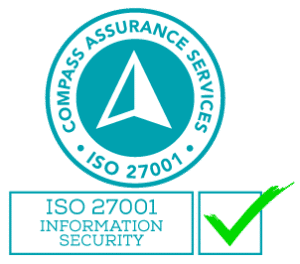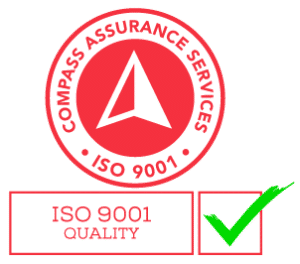Construction companies rely on Enterprise Resource Planning (ERP) systems to manage projects, budgets, timelines, and resources across multiple sites. These platforms store a lot of sensitive business data including financial records, supplier contracts, and job costing details. That makes them a key target for cyberattacks.
Many construction businesses use ERP solutions without considering how exposed their systems might be. A weak setup can leave gaps in access control, data protection and remote access. These issues often go unnoticed until something goes wrong.
This article outlines practical ways to improve the security of your construction ERP software. With these tips, you can protect project data and keep your operations running smoothly.
Tip #1: Select ERP Software with Strong Security Features
This one might seem obvious, but not all ERP systems offer the same level of protection. When assessing an ERP for the construction industry, look for features that support secure access and clear data oversight.
Minimum security features should include:
- Multi-factor authentication (MFA) for all user accounts.
- Data encryption in transit and at rest.
- Role-based access controls to limit user permissions.
- Activity logs and audit trails for monitoring changes.
These features are essential for any construction company ERP handling project planning, financial reporting and document management. Cloud-based ERP solutions often provide built-in security options, but they still need to be configured properly.
Ask your ERP vendor to explain how the system protects real-time data and how updates or patches are handled. Security should be a core part of the ERP system in construction, not an afterthought.
Tip #2: Control User Access with Role-Based Permissions
Too many users with unrestricted access increases the risk of accidental changes, data leaks or unauthorised activity. A construction ERP should allow role-based permissions that match specific job responsibilities.
Steps to improve access control:
- Set up user roles based on tasks like project planning, financial control or resource allocation.
- Restrict access to sensitive areas such as financial reporting or supplier contracts.
- Review access levels regularly, especially after staffing changes.
For a small to medium-sized construction business, this can make daily operations more secure without disrupting workflows. Managing user access properly also supports job costing accuracy and keeps project data consistent.
Learn more: 7 Elements of a Data Loss Protection Strategy
Tip #3: Keep the ERP System and Integrations Updated
Outdated ERP software and third-party tools can create weak points in your IT environment. Software providers release updates to fix bugs and address known security issues. Ignoring these updates leaves your system exposed.
To stay protected:
- Enable automatic updates for your construction ERP software, where possible.
- Schedule regular checks for version updates across all connected tools.
- Work with your IT provider to test updates before deployment, if your ERP is customised.
This applies to all ERP systems in construction, whether cloud-based or on-premises. Staying current supports data security and helps you get the most from key features such as supply chain management and real-time reporting.
Learn more: The Ultimate Guide to Patch Management for Small Businesses
Tip #4: Train Staff on Cyber Security Basics
Human error is still one of the most common causes of security breaches. If your team uses the ERP system daily, they need to understand how to spot risks and handle data securely.
Training topics to cover:
- Identifying phishing emails and suspicious links.
- Creating strong, unique passwords for ERP logins.
- Safely managing documents within the ERP system.
- Reporting unusual system behaviour.
Cyber security awareness is just as important as system-level protections. For construction businesses relying on ERP software to handle document management and project performance, well-trained staff are a vital part of streamlining operations securely.
Tip #5: Secure Mobile and Remote Access
Many project managers and site teams use mobile access to check schedules, update job progress or review documents. If that access isn’t properly secured, it can be an entry point for attackers.
To strengthen remote access:
- Require multi-factor authentication for mobile logins.
- Use a secure VPN for off-site connections.
- Limit which data can be accessed remotely based on user roles.
- Disable access from unknown or unauthorised devices.
A construction ERP should support field-based teams without compromising the security of financial data, project planning tools or supply chain workflows. Secure access protects data and keeps your project performance on track.
Learn more: IT Infrastructure Management for Construction Hybrid Workforces
Tip #6: Back Up ERP Data Regularly
Losing access to your ERP system, even for a short period, can delay jobs, affect job costing and disrupt communication with suppliers. Regular backups are essential to recover quickly from hardware failure, ransomware or accidental deletion.
Best practices for ERP backups:
- Set up automatic daily backups of the full ERP system.
- Store backups offsite or in a secure cloud environment.
- Test backup recovery regularly to confirm data can be restored.
- Ensure backups include documents, financial records and project data.
Backups are especially important for small construction businesses that rely on ERP solutions for document management, financial reporting and project timelines.
Tip #7: Work with an IT Provider that Knows Construction ERPs
Managing ERP security requires technical skills and consistent oversight. A managed service provider can help you set up the right protections, monitor for risks and support your team if something goes wrong.
A managed IT provider should be able to:
- Configure secure user access and system updates.
- Monitor the ERP system for unusual activity.
- Assist with data backup, recovery and ongoing support.
- Understand the demands of ERP systems in construction environments.
Working with a provider familiar with construction ERP software means fewer delays, better support, and less risk to your operations. It also helps your business make full use of key features while keeping data secure.
Learn more: Cyber Insurance: Why Construction Firms Need It in 2025
Next Steps: Secure Your Construction ERP Software Before It’s Too Late
A secure construction ERP system does more than protect data; it helps keep projects moving, budgets on track, and teams aligned. Simple measures like setting user permissions and training staff can make a significant difference.
When cyber security is built into your ERP system from the start, your construction business is better positioned to handle challenges without disruption.
If you’re reviewing ERP options or looking to improve the way your current system is managed, Steadfast Solutions can help. We work with construction businesses to embed security into their ERP solutions without adding complexity.
Book a free consultation to assess your current setup and explore practical steps to protect your data, streamline workflows, and improve project performance.




